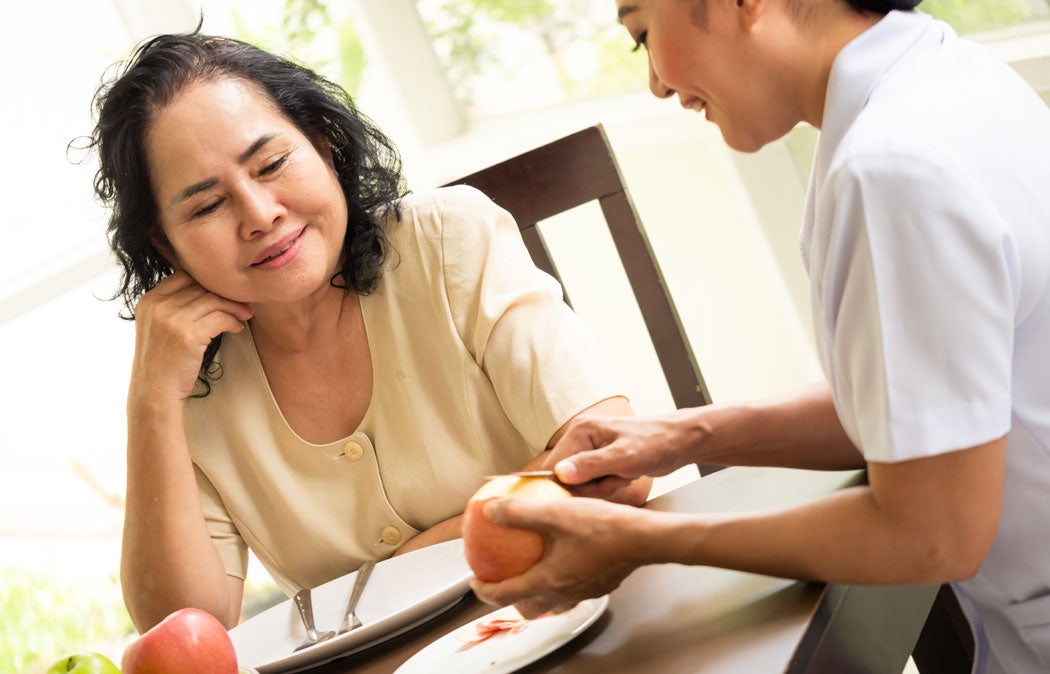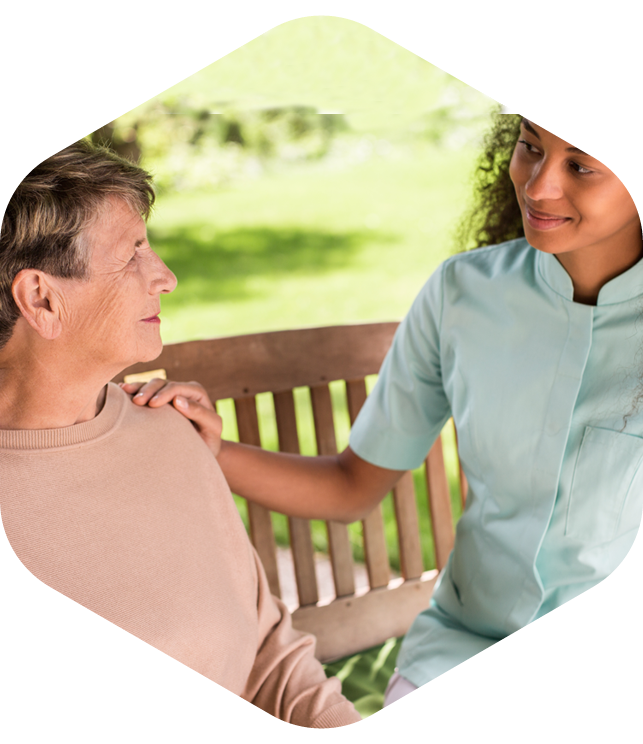The Importance of Caregivers for Those Undergoing Cancer Treatment
With treatments’ side effects, caregivers can help in everyday chores and keep patients safe.

Adverse effects from the treatment may lead to numerous physical and psychological changes, which might affect patients’ ability to keep their usual routine. In order to make things easier, someone may take the role of a caregiver, whether they are hired for the position or even a family member that has offered to do it.
Who can help the person undergoing cancer treatment?
Adverse reactions of cancer treatment may arise in the first two weeks of initial sessions up to six months after they have ended.1,2 Therefore, it’s a good idea that patients have someone to support them right at the beginning of treatment. Most of the time, it’s the spouse or a family member who takes on the task. If patients are estranged or far away from their family, a close friend or even a neighbor may act as the main caregiver and help with day-to-day activities.2
Caregivers are mainly responsible for taking care of the house, e.g., doing domestic chores, and overseeing medical schedules.2 Additionally, they should learn from the doctors which symptoms are to be expected and which ones would mean an emergency, and what to do in such cases.2,3
Sample tasks of a caregiver
Here are a few things caregivers can do to care for cancer patients undergoing treatment:
Housekeeping and personal care
- In case side effects are so strong that the patient is unable to do it by themselves, caregivers may need to help them bathe, dress or use the bathroom; 2,3
- Plan and prepare daily meals; 2
- Helping alleviate symptoms, e.g., taking care of dry skin or preparing foods that prevent nausea; 2,3
- Organize and clean the house, as well as taking care of children and/or pets 3
Home management
- Make doctor’s appointments and oversee the patient’s medical agenda; 3
- Take and pick up the patient from medical appointments; 2
- Packing a bag for treatment sessions with items such as snacks, books and a change of clothes; 2
- Do the groceries; 2
- Manage financial, health insurance and similar matters; 2
- Buying prescribed medication. 3
Emotional support
- Although it’s not a task, caregivers often offer emotional and psychological support. 2,3
Questions caregivers may have:
Should caregivers go to doctor’s appointments?
By going to appointments and treatment sessions, caregivers will be better informed about how to deal with changes in routine, as well as be able to give the doctor information about the patient’s health condition. 4,5
Can the person with cancer be without their caregiver?
That depends on how much side effects impact the person with cancer’s everyday life. Sometimes symptoms are so strong they prevent patients from being able to drive or even leave the house by themselves, so the caregiver’s assistance is necessary. However, if possible, it’s also recommended that the person undergoing treatment also performs tasks by themselves at home and have some independence over housework. To make things easier, try making a list of daily tasks and putting them into two categories: things the patient can do by themselves and those they need help with. 3,4
Psychological support for caregivers
Caregivers’ physical and mental health must also be considered, as they may become overwhelmed. Having to be constantly available often makes caregivers ignore their own health needs, leading them to develop depression, anxiety disorders, emotional stress crises and other problems.6
Thus, it’s important that caregivers also have psychological follow-up to improve their well-being and even have them feel more motivated to care for the person with cancer, promoting a sense of gratitude, personal growth and also a stronger bond with the patient.6
Learn more about the importance of caregivers’ wellness.
References:
1 - Practical Guide for Cancer Patients (“Guia Prático para pacientes oncológicos”). Available at: http://www.saudedireta.com.br/docsupload/1334403575GuiaPratico.pdf. Access on: November/2019.
2 - Caregiver Resource Guide. Available at: https://www.cancer.org/content/dam/cancer-org/cancer-control/en/booklets-flyers/american-cancer-society-caregiver-resource-guide.pdf. Access on: November/2019.
3 - ASCO caregiving answers. Available at: https://www.cancer.net/sites/cancer.net/files/asco_answers_guide_caregiving.pdf. Access on: November/2019.
4 - Longacre ML. Cancer caregivers information needs and resources preferences. Available at: https://www.ncbi.nlm.nih.gov/pmc/articles/PMC3665756/. Access on: November/2019.
5 - Marchi JÁ, Paula CC de, Perlini MNOG-, Sales CA. The Meaning of Being-a-Caregiver of a Dependent Relative
Suffering from Cancer: Palliative Contributions (“Significado de ser-cuidador de familiar com câncer e dependente: contribuições para a paliação”). Available at: http://www.scielo.br/pdf/tce/v25n1/0104-0707-tce-25-01-0760014.pdf. Access on: November/2019.
6 - Delalibera M, Presa J, Barbosa A, Leal I. Burden of caregiving and its repercussions on caregivers
of end-of-life patients: a systematic review of the literature (“Sobrecarga no cuidar e suas repercussões nos cuidadores de pacientes em fim de vida: revisão sistemática da literatura”). Available at: http://www.scielo.br/pdf/csc/v20n9/1413-8123-csc-20-09-2731.pdf. Access on: November/2019.
Know more about the subject

What Does Cancer Nausea Feel Like? Causes, Remedies, and How to Cope
If you have recently received a cancer diagnosis or are undergoing cancer treatment, you may often feel nauseated or even vomit.

Managing taste changes during cancer treatment: what can you do?
Managing taste changes during cancer treatment can be challenging for both patients and caregivers.

When A Cancer Patient Stops Eating: Advice for Caregivers
While chemotherapy is a leading treatment for cancer, it can cause many difficult and often unpleasant side effects that often affect a person’s day-to-day life1. Loss of appetite and eating problems are common side effects that many people with cancer face, caused by both cancer and its treatment1.
A Guide To Cancer Diets: Battling Cancer With Nutrition
Eating a healthy, balanced diet helps give your body the nutrients, calories, and strength it requires to fight off diseases.

How Social Support Networks Can Help People with Cancer
The stronger the social support network’s connection is, the more significant is its help.1

How is the Nutritional Recovery of Cancer Patients Carried out?
Nutritional recovery aims to prevent and treat malnutrition, boost the immune system, speed up recovery after surgeries, reduce hospital length of stay and improve response to cancer treatment in general.1,2 Learn about the stages of nutritional recovery.



